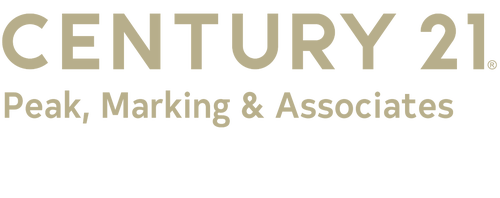For anyone considering buying a home or refinancing, keeping an eye on mortgage interest rates is crucial. These rates have a significant impact on the overall cost of borrowing, influencing monthly payments and the total amount paid over the life of the loan. As we enter 2024, let’s take a closer look at the current state of the mortgage interest rate market and what it means for prospective homeowners.
Understanding the Current Landscape
The mortgage interest rate market is ever-changing, influenced by a variety of factors including economic indicators, inflation rates, and the actions of the Federal Reserve. Over the past year, we’ve seen some notable trends that have shaped the current landscape:
1. Historic Lows to Gradual Increases:
- In recent years, mortgage rates hit historic lows, enticing many buyers to enter the market or refinance existing loans.
- However, as the economy has shown signs of recovery and inflation has risen, we’ve witnessed a gradual increase in rates.
2. Federal Reserve Policy:
- The Federal Reserve plays a significant role in shaping interest rates through its monetary policy decisions.
- As of now, the Fed has signaled a commitment to gradually raising interest rates to combat inflation.
3. Economic Indicators:
- Strong economic indicators, such as job growth and consumer spending, have contributed to the upward movement of rates.
- However, uncertainties such as geopolitical tensions and supply chain disruptions continue to add volatility to the market.
The Current Numbers
As of March 2024, the average 30-year fixed mortgage rate hovers around 4.5% to 5.0%. This is a notable increase from the sub-3% rates seen just a couple of years ago. For those looking at shorter-term loans, 15-year fixed rates are generally around 3.75% to 4.25%.
For those considering an adjustable-rate mortgage (ARM), rates are currently competitive, offering lower initial rates with the potential for adjustment after an initial fixed period.
What Does This Mean for Buyers and Homeowners?
For Prospective Homebuyers:
- Increased Costs: Higher interest rates mean higher monthly payments and overall borrowing costs. This can impact the affordability of homes for many buyers.
- Adjusting Expectations: Buyers may need to adjust their expectations regarding the size, location, or features of the homes they’re considering.
- Acting Sooner Rather than Later: With rates expected to continue their upward trend, acting sooner rather than later could save thousands of dollars over the life of a loan.
For Current Homeowners Considering Refinancing:
- Assessing Savings: While rates have risen from their lows, they are still relatively attractive compared to historical averages. Homeowners with higher rates may still find significant savings through refinancing.
- Evaluating Goals: Homeowners should evaluate their financial goals, such as reducing monthly payments or paying off the loan faster, to determine the best refinancing option.
Strategies for Today’s Market
Navigating the current mortgage interest rate market requires a strategic approach. Here are some tips for buyers and homeowners:
1. Lock in Rates: If you’re in the process of buying a home or refinancing, consider locking in your rate. This can protect you from any further increases while you complete the loan process.
2. Comparison Shop: Rates can vary among lenders, so it’s essential to shop around and compare offers. Consider working with a mortgage broker who can help you find the best deal.
3. Consider Adjustable Rates: While fixed-rate mortgages provide stability, adjustable-rate mortgages can offer lower initial rates. Just be sure you understand the potential for rate adjustments in the future.
4. Improve Your Credit Score: A higher credit score can help you qualify for better interest rates. Take steps to improve your credit by paying bills on time, reducing debt, and correcting any errors on your credit report.
Looking Ahead
As we move further into 2024, the trajectory of mortgage interest rates will continue to be influenced by a range of factors. Economic data, inflation trends, and Federal Reserve decisions will all play a role in shaping the market.
For now, prospective buyers and homeowners should stay informed, work with trusted professionals, and make decisions based on their individual financial circumstances. While rates have risen from their historic lows, they are still relatively attractive, making homeownership a viable and rewarding investment for many.
In conclusion, the current mortgage interest rate market presents challenges and opportunities for buyers and homeowners alike. By staying informed, comparing offers, and considering the long-term implications of borrowing, individuals can make sound financial decisions in today’s evolving market.
As always, it’s advisable to consult with a financial advisor or mortgage expert to tailor a strategy that best fits your unique needs and goals.

 Facebook
Facebook
 X
X
 Pinterest
Pinterest
 Copy Link
Copy Link

